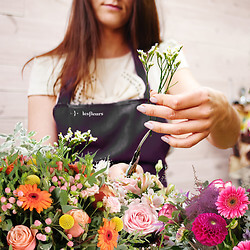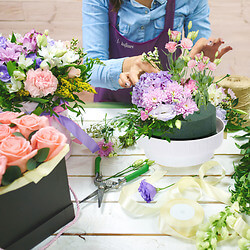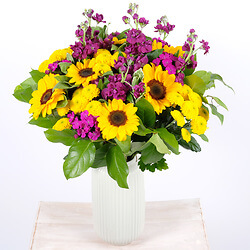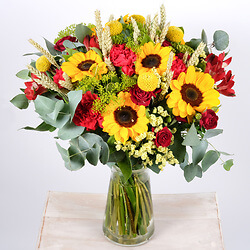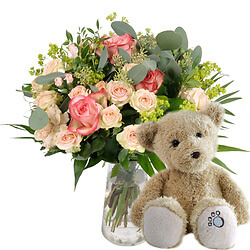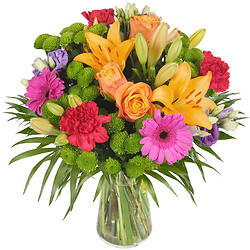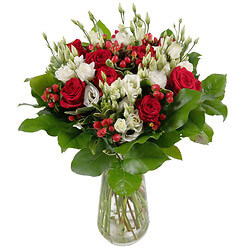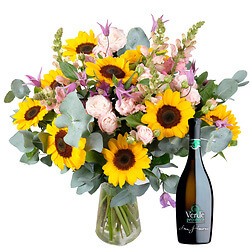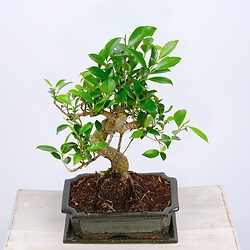A brief look at the floristry profession (Florists shop)
Florists care for and sell plants and cut flowers and make floral arrangements. They advise customers, arrange bouquets, create piquant arrangements, create table decorations, make funeral wreaths and wedding bouquets. They also work outside the shop to order, for example looking after interior plants in hospitals, schools and companies, and decorating churches, dining rooms or tables for banquets, weddings and funerals.
Florist
Florists, whether male or female, handle, care for and sell cut flowers, plants, dried flowers and accessories. They also create and make arrangements of flowers and plants, which may be natural, dried or artificial, and may be for such things as the entire floral arrangements for a wedding, Christmas arrangements, floral tributes and wreaths for bereavements, table decorations etc. Sometimes they are required to be out and about to decorate an apartment, a window display, a festival hall or a church.
Their main tasks consist of:
ASupply and display in the florists shop
- ordering and selecting the flowers required for the florists shop from the wholesaler
- regularly attending the flower market, a type of floral supermarket, so as to recognize any innovations and market trends
- ensuring the quality and quantity of goods according to the delivery note and separating the different produce to store them and keep them in top condition
- making the best use of the display window of the florists shop and creating a harmonious display of plants, vases and bouquets
Care of plants and flowers
- preparing, cutting, stripping the leaves or greenery from flowers to be used in a bouquet
- taking care of and watering plants and shrubs in pots
- preventing and treating against parasites and illness
- every type of floral arrangement and decoration
Customer service and personal skills
- creating arrangements from a small floral composition to a prestigious bouquet, taking into account the clients wishes and the latest trends
- judiciously choosing flowers, plants and accessories (moss, ribbons, candles, shells, stones, wood, dried flowers, paper, card
)
- sales and customer service
- greeting customers and finding out what they would like; as necessary, informing the customer of the origin of flowers and plants, their length of life, flowering season and their care
- carefully wrapping goods and taking correct payment
- dealing with telephone orders as well as the delivery of floral greetings
- arranging transport and flower delivery abroad by means of an international service
- administrative tasks
- taking the inventory and managing stocks
- calculating prices and noting them on price tags as necessary
Florists, more often than not, work in places that are cool and humid, in garden centres and in supermarkets. They often have to work overtime and irregular hours, especially during the holiday season and on special occasions (Christmas, Mothers Day, Valentines Day etc.).
Useful links on training to become a florist
